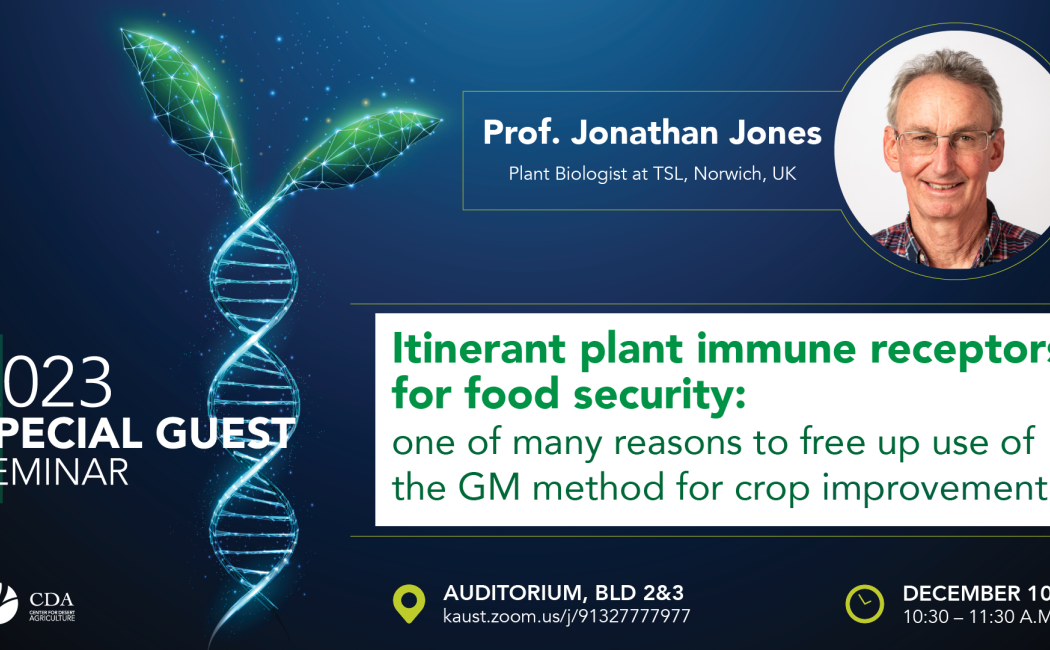Detail

Itinerant plant immune receptors for food security; one of many reasons to free up use of the GM method for crop improvement
Speaker: Prof. Jonathan Jones
Plant biologist at TSL/ Norwich, UK
Hosted by Prof. Rod Wing
Join us in the Auditorium between Building 2 & 3
Abstract:
Plants carry non-overlapping sets of immune receptors; thus, one plant may be able to detect pathogen molecules that a second plant cannot. Genes for such an immune receptor from the first plant can be moved to the second plant to increase its resistance. This is a benign and useful way to reduce crop disease, yet because it involves use of “the GM method”, it is ridiculously difficult to implement in most jurisdictions.
I will discuss a recent Royal Society policy briefing - https://royalsociety.org/news/2023/10/gm-crops/ - in the context of the worldwide need for proportionate regulation of the GM method for crop improvement.
About the speaker:
Jonathan D G Jones (JJ) is a plant biologist who investigates how plants resist disease and how pathogens circumvent host immunity. After a PhD on cereal chromosomes at PBI, Cambridge 1976-1980 and a 2-year postdoc at Harvard studying biological nitrogen fixation, JJ was among the first to work with optimizing GM methods for crop improvement 1983-8 at US agbiotech startup AGS. For past 12 months he has been on the cusp of being appointed Kaust adjunct faculty.
At the Sainsbury Lab (TSL) in Norwich since 1988, JJ isolated some of the first plant genes that encode immune receptors and that confer disease resistance. He works on isolating, understanding and deploying new genes for potato late blight resistance from wild potato relatives and on investigating basic mechanisms of plant immunity. He promotes bringing innovation to public use and cofounded 2 startups, Mendel Biotechnology and Norfolk Plant Sciences. He strongly advocates GM solutions to crop disease problems and advises the USAID “FeedTheFuture” potato program (https://www.facebook.com/Ftfpotato/) and the 2Blades.org foundation. He co-authored Royal Society's "Reaping the Benefits" review of science for sustainable food security (https://royalsociety.org/topics-policy/publications/2009/reaping-benefits/) and advice to the CST on GM (https://www.gov.uk/government/publications/genetic-modification-gm-technologies) and was lead author on a recent Royal Society policy briefing https://royalsociety.org/news/2023/10/gm-crops/. For his many contributions to understanding plant/microbe interactions, he was elected EMBO member (1998), FRS (2003) and international member of the US National Academy of Sciences (2015). He received this year’s outstanding achievement award from the ISMPMI (https://www.ismpmi.org/members/Awards/Pages/2023-Awardees.aspx).